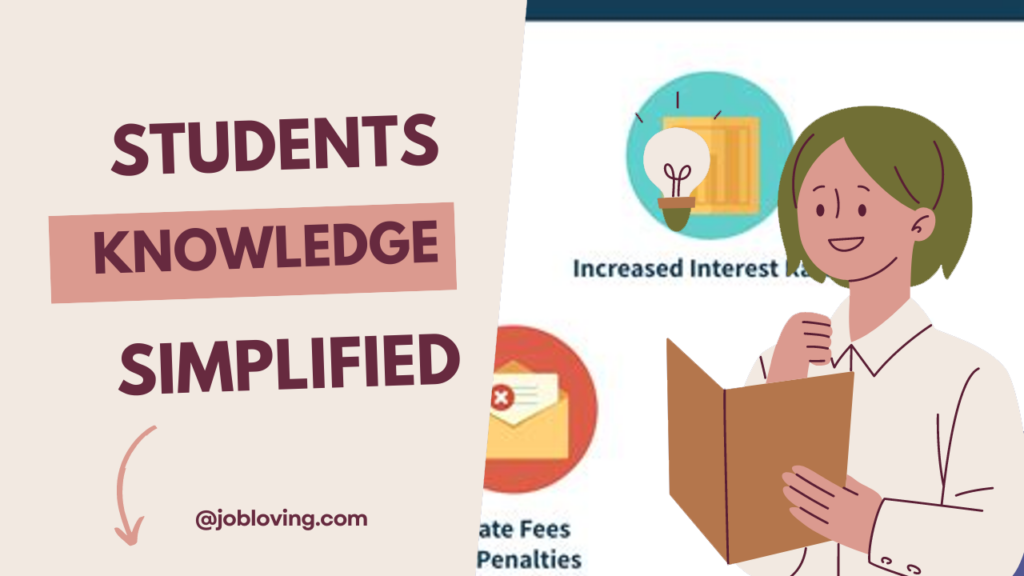What Happens to My Student Loans If I Take a Semester Off?
Taking a semester off from college can feel like a big decision. For many students, the thought of hitting the pause button on their education raises a flurry of questions, not the least of which is: What will happen to my student loans during this time? Let’s demystify the process, sprinkling in some friendly advice along the way.
Understanding Direct Loans
If you’ve taken out Federal Direct Loans—commonly known as Stafford Loans—here’s the scoop: all Federal Direct Loans, whether they’re Subsidized or Unsubsidized, come with a grace period of six months after you stop being enrolled at least half-time. This grace period is a golden ticket of sorts, giving you some breathing room before payments kick in.
The Essentials of Grace Periods
- Six-Months Grace Period: When you take a semester off, especially if you’re dropping below half-time enrollment, this typically launches a six-month grace period before the ugly world of student loan repayments rears its head. Think of it as a quick vacation from your debts.
- Re-Enrollment Resets Everything: If you decide to re-enroll at least half-time before your grace period ends, congratulations! You’ve just reset that clock. This means back to square one, and you won’t have to start making payments just yet.
- Interest Accumulation: However, keep your eyes open. Depending on whether you have Subsidized or Unsubsidized loans, accrued interest might capitalize during your grace period. This nifty little detail means that your student debt could grow if not watched closely, impacting your financial future when repayment does begin.
The Impact on Financial Aid
What about your financial aid situation? Taking a semester off doesn’t automatically mean you’re waving goodbye to aid. Here’s how it plays out:
- Federal Grants: If you receive Pell Grants, good news for you! These remain unaffected by a semester off, and you can tap into these grants for up to six undergraduate years, whether or not those years are consecutive.
- FAFSA Update Required: Each academic year, you’ll need to fill out your FAFSA (Free Application for Federal Student Aid) again. This applies even if you took time off. It’s essential to keep that paper trail updated to maintain eligibility for future financial aid.
- Private Scholarships: Now, if you’re counting on private scholarships, buckle up. Many come with specific enrollment criteria. It’s a smart move to check those stipulations before making any decisions.
Keeping Up Good Standing
Maintaining good academic standing is crucial, especially when it comes to merit-based scholarships and grants:
- Good Standing Matters: Dropping out can impact your eligibility for these funds. Stay mindful of your performance. If you need to take a break for health, work, or personal reasons, it’s wise to communicate with your academic advisor to find ways to manage your courses effectively.
- Distance from the 60% Mark: If you decide to leave school before the 60% mark of the semester, be aware that you may need to repay any received grants. This can seriously take a toll on your finances!
Communication is Key
If you’re contemplating taking a semester off, don’t sleep on communication! Here are a few tips to keep in mind:
- Talk to Financial Aid Advisors: Before making any big moves, consult with financial aid advisors at your institution. They can provide insight into how your decisions could affect your loans and aid eligibility, helping you to make informed choices.
- Notify Your Loan Servicer: If you drop below half-time status, let your loan servicer know. This is critical for keeping your repayment records straight and avoiding any hiccups down the road.
The Long Term: Consequences
Deciding to take time off isn’t a decision to be made lightly. Consider the following potential long-term implications:
- Increased Loan Costs: If you let some time pass, and then re-enroll later, repayments might come knocking unexpectedly. Being aware of these nuances can help you avoid sticky financial traps.
- Longer Repayment Timelines: Taking a semester off does not just affect your immediate financial obligations, it can impact your repayment plans and timelines, and may require you to reassess your financial situation moving forward.
The Bottom Line
So, what does this all mean? In summary:
- Remember that taking a semester off can give you a six-month grace period before you need to worry about making payments.
- Your financial aid status will need to be updated, and private scholarships may have specific conditions you must fulfill.
- Maintaining good academic standing is essential not just for keeping your belonging funds but also for your future opportunities.
While it’s crucial to weigh the pros and cons of taking a semester off, don’t shy away from consulting with financial aid advisors or your loan servicers for tailored advice. They can help guide you in making decisions that best align with your academic journey and financial health.
Remember to read those loan agreements closely, and stay informed about your financial responsibilities. Taking a semester off can be a refreshing option, but it’s essential to approach it with an insightful understanding of its broader implications. You’ve got this!

